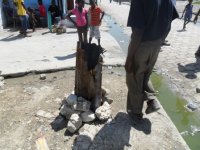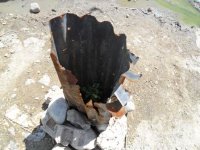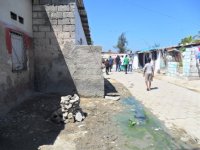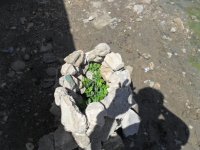I don't drink, not a religion thing because I don't go there and am usually irritated by those who do. So I doubt the tours will be on my schedule.
I explained to my wife about a week here that I felt like it was 1965 and I was in the Peace Corps. I'm much closer to being three times the age of most of those around me here than I'm to being twice their age. It is an unbelievable experience to be with kids that are special beyond measure. Nurses, doctors, and people donating their skills and passion to help others without blinking an eye.
No meals served here at the compound on Sundays. I ate local earlier. So they pool some funds and are having a feast that is east coast mexican made with local Haitian products. It is special to sit here and listen to the joy of life that is the young when they are most alive.
These kids live in tents. No a/c, sporatic power, it's been off almost all day and now it's on, bucket showers, and they are exposed to some of the best and worst that humanity can offer on a daily basis. They pay $105.00 per week to have these facilities along with two meals a day six days a week. They provide the tents themselves too. There's also the internet, slow but available most of the time.
I live amongst heroes.
I forgot the toilets. The are compost toilets. You do your business in a bucket and cover it with rice hulls or sawdust. There are two of them here.
If you ever sense me starting a pity party please slap me. twice.



